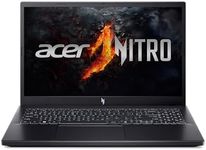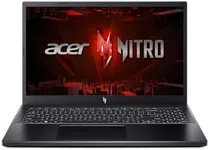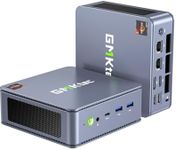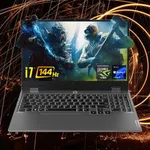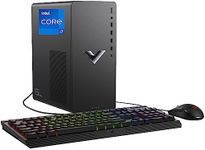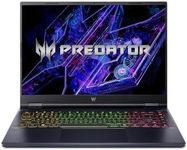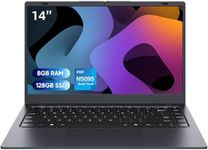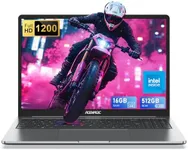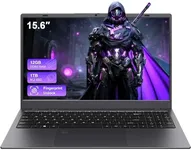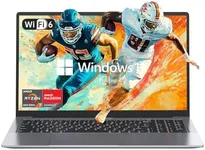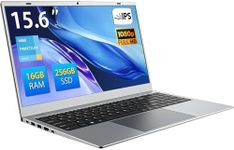Buying Guide for the Best gaming PC deals
When it comes to picking the right gaming PC, it's important to consider your specific needs and preferences. A gaming PC is a significant investment, and choosing the right one can greatly enhance your gaming experience. To make an informed decision, you should understand the key specifications that determine a gaming PC's performance and how they align with your gaming requirements. Here are the key specs you should consider and how to navigate them.Processor (CPU)The CPU is the brain of your gaming PC, responsible for executing instructions and processing data. A powerful CPU ensures smooth gameplay and can handle complex game mechanics. CPUs are typically divided into entry-level, mid-range, and high-end categories. Entry-level CPUs are suitable for casual gaming and older titles, mid-range CPUs can handle most modern games at decent settings, and high-end CPUs are designed for enthusiasts who want the best performance in the latest games. Choose a CPU based on the types of games you play and the level of performance you desire.
Graphics Card (GPU)The GPU is crucial for rendering images, videos, and animations in games. It directly impacts the visual quality and frame rates you experience. GPUs range from budget options to high-end models. Budget GPUs can handle less demanding games and lower settings, mid-range GPUs are suitable for most modern games at medium to high settings, and high-end GPUs provide the best performance for the latest AAA titles at ultra settings. Consider the resolution and graphical fidelity you want in your games when selecting a GPU.
RAM (Memory)RAM is the short-term memory of your gaming PC, allowing it to quickly access data needed for running games and applications. More RAM can improve multitasking and game performance. Gaming PCs typically come with 8GB, 16GB, or 32GB of RAM. 8GB is the minimum for modern gaming, 16GB is ideal for most gamers and ensures smooth performance, and 32GB is for those who run multiple applications simultaneously or engage in content creation alongside gaming. Choose the amount of RAM based on your gaming habits and additional tasks you perform on your PC.
StorageStorage determines how much data your gaming PC can hold, including games, applications, and files. There are two main types: Hard Disk Drives (HDDs) and Solid State Drives (SSDs). HDDs offer larger capacities at lower prices but are slower, while SSDs are faster and improve load times but are more expensive. Many gaming PCs come with a combination of both. For optimal performance, consider an SSD for your operating system and frequently played games, and an HDD for additional storage. Choose storage based on the number of games and files you need to store.
Cooling SystemA good cooling system is essential to prevent your gaming PC from overheating, which can affect performance and longevity. Cooling systems include air cooling and liquid cooling. Air cooling is more common and sufficient for most users, while liquid cooling provides better performance for high-end systems and overclocking. If you plan to play demanding games for extended periods or overclock your components, consider a robust cooling solution. Choose a cooling system based on your gaming intensity and the environment where your PC will be used.
Power Supply Unit (PSU)The PSU provides power to all components of your gaming PC. A reliable PSU ensures stable performance and protects your components from power surges. PSUs are rated by wattage and efficiency. Higher wattage is needed for more powerful components, and higher efficiency (80 Plus ratings) means less energy waste. Calculate the total power consumption of your components and choose a PSU with a bit of headroom to ensure stability and future upgrades. Select a PSU based on the power requirements of your chosen components.
MotherboardThe motherboard is the main circuit board that connects all components of your gaming PC. It determines the compatibility and expandability of your system. Motherboards come in different sizes (ATX, Micro-ATX, Mini-ITX) and feature sets. Ensure the motherboard supports your chosen CPU, GPU, and RAM, and has enough ports and slots for future upgrades. Choose a motherboard based on the features you need and the size of your PC case.

